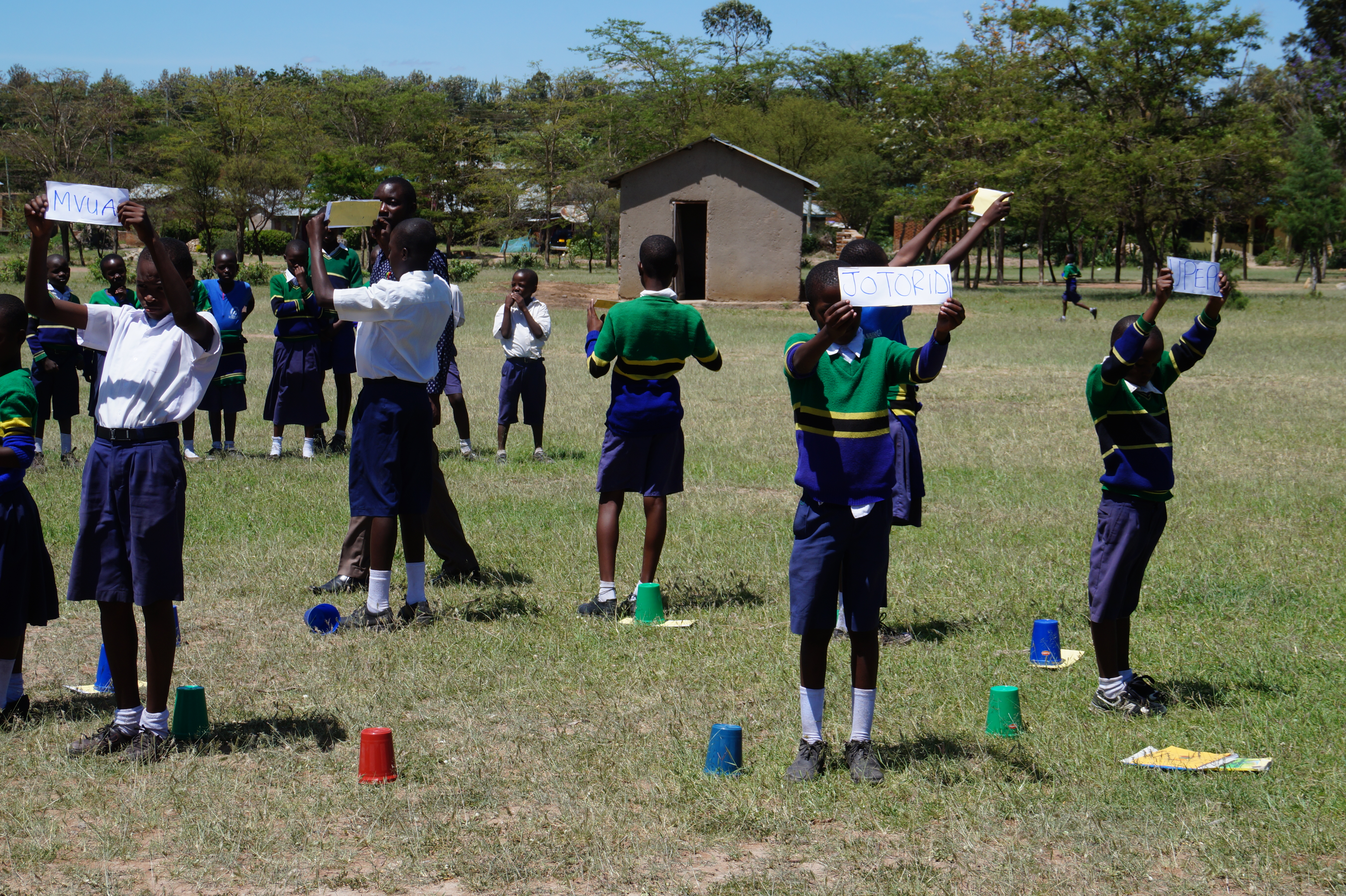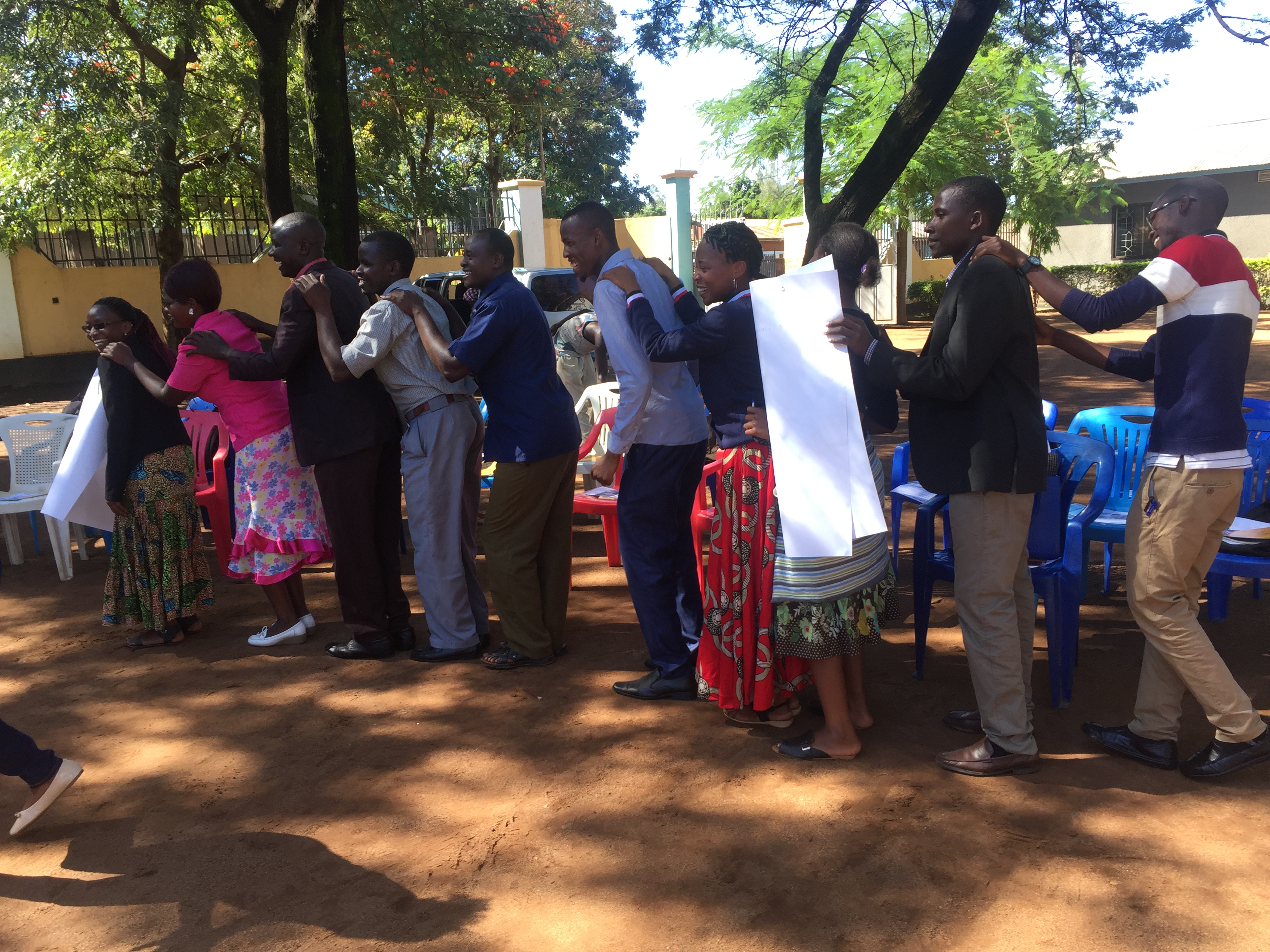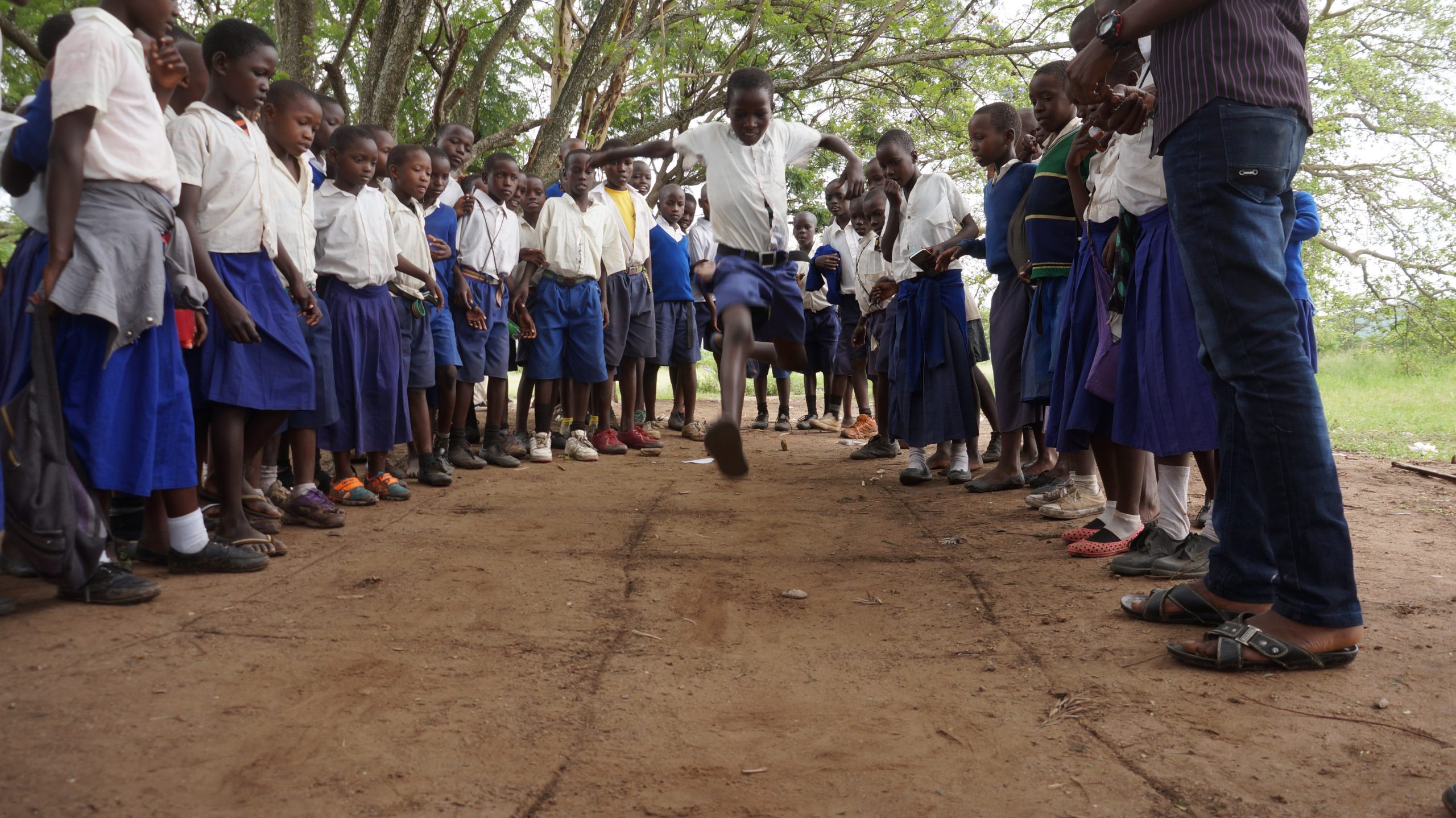Top image: Active, play-based learning sessions, like the one shown above in Tanzania, help children to build essential life skills like leadership, teamwork, problem solving, and empathy, which are critical for meaningful participation in decision-making processes.
If you think back to your primary school days, you likely gained a basic understanding of reading, writing, and math. By playing with peers on the playground and interacting with teachers in the classroom, you may have also developed basic social and emotional life skills that are still with you today. In Tanzania, nearly all primary school-aged children are enrolled in school and have the potential to be exposed to those same learning opportunities. However, simply attending school does not mean they are gaining the knowledge and skills they need to succeed in the education system and in life. In fact, despite high enrolment rates, children’s reading levels across the country remain low. Additionally, the status of children’s social emotional learning (SEL) skills in Tanzania is largely unknown.
Evidence indicates that weak teaching practices are a key factor in the gap between enrolment and learning; a lack of active, participatory techniques in the classroom leaves students disengaged. Generally, teachers can monitor their students’ academic and social emotional learning progress through standardised tools, which help them identify and respond to students’ individual needs. However, research has found that most tools and frameworks for measuring social emotional learning skills are missing the measures most relevant for children in the Tanzanian context. One study identified that the most prominent tools fail to reflect the emphasis Tanzanian society places on social responsibility, including attentive listening, respect, and obedience (Jukes, et. Al. 2018). To support improvement in teaching practices and facilitate an increase in children’s skills, Tanzania-specific measures and teaching strategies are necessary. That is exactly what we aim to address.

Our research asks: How does a sample of primary school-aged children, their caregivers, and educators in Tanzania define the important SEL skills in the lives of children, and what does a context-specific measurement of these skills look like? Ultimately, how are primary school children’s holistic learning outcomes impacted by the common attributes of Design Thinking Approach (DTA – the application of human centred design principles of ideation and testing of solutions that places people at the centre of experimenting classroom solutions) and Play-Based Learning (PBL – an experiential, participatory and guided approach, which enhances the teaching and learning process and allow children organise and make sense of the world as they actively engage with their peers and leaders in educational games and activities) as teaching strategies in Tanzania?
We will survey students, parents, and teachers from 40 school communities in four districts – Tarime, Serengeti, Temeke, and Lindi – using interviews, focus group discussions, observations, and survey questionnaires to identify, define and validate contextually relevant social emotional learning (SEL) skills. We will then develop a comprehensive measurement tool targeting these SEL and academic skills and test it with a group of Grade 4 students in the same four districts to ensure the tool is capturing the necessary information and will be easy for teachers to uptake. These research activities will generate evidence on the link between interactive teaching strategies and children’s holistic (SEL and academic) skills in Tanzania, which teachers can measure using the reliable, valid tool developed by the project. The contextually relevant tool will enable teachers to adapt their teaching strategies in real-time to better meet their students’ needs.
Our use of collaborative research methods and school-driven innovation, involving close coordination between the research team and children, parents, teachers, and education system staff, will ensure the results are practical, actionable, and reflective of the real situation and perceptions of those it aims to impact. The findings from this research will be published in academic journals and shared with national education stakeholders in Tanzania to support the development of teaching and assessment guides in schools.

By drawing from school community members to develop evidence-based tools and learning products that Tanzania’s education system can harness, our research will contribute to bridging the knowledge gap regarding the most effective teaching strategies for improving children’s social, emotional, and academic skills. This aspiration aligns with the overall Schools2030 program aim which seeks to understand what works to promote holistic quality learning and seeks to equip school-level actors with knowledge, skills and platforms to better design, measure and showcase solutions.
Image credits: Right To Play Tanzania 2022
Want to know more about our research projects and how they underpin our programme? Click here.
